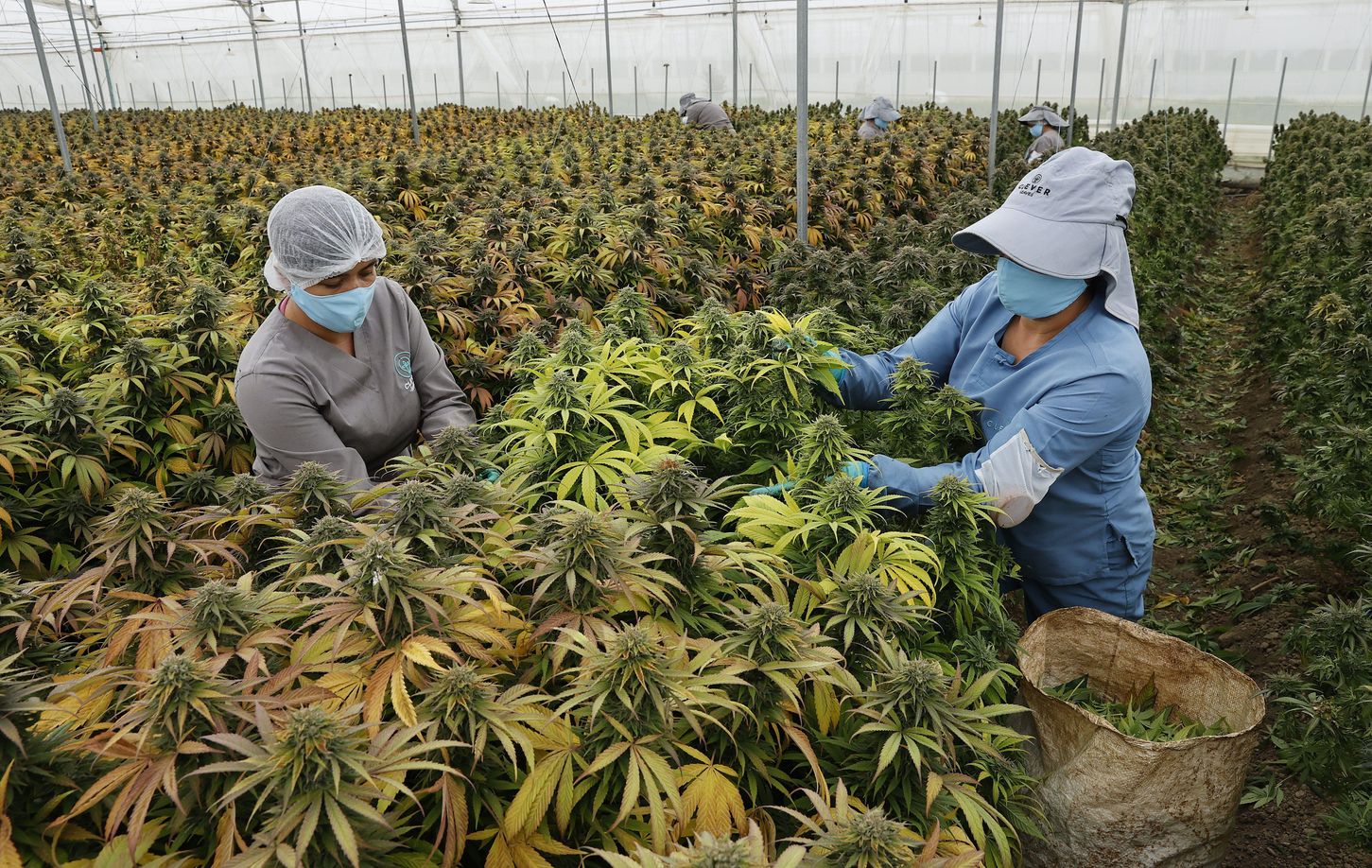Like Afghan War, The U.S. War On Drugs Must End
The United States has long dictacted policy regarding narcotics, and Colombia, in particular, has paid a heavy price. The current presidential race is an opportunity to shift course and prioritize the welfare of everyday people.
With a growing market, the medical cannabis industry is making its way in Colombia
-OpEd-
More than 20 years ago, I read a headline in the satirical U.S. newspaper The Onion declaring "Drugs Win Drug War." It would be an appropriate headline for this item too, but not as a joke. As the years have shown, it's an accurate description of reality.
U.S. anti-narcotic laws date from the prohibition period that produced the 1919 constitutional amendment banning the production and consumption of alcohol, which later included marijuana, cocaine and opium. The amendment was repealed in 1933 as alcohol consumption increased and criminal gangs flourished, but the ban on other substances remained in force.
After World War II, the United States pushed for a ban on such drugs internationally, which led the UN to adopt the 1961 Single Convention on Narcotic Drugs. Ten years later, the then president of the United States Richard Nixon coined the term "war on drugs," as part of his policy at home against youth movements protesting racism and the Vietnam war.
In the early 1980s, Ronald Reagan raised the issue to foreign-policy level, publicly declaring illicit drugs to be a matter of national security. And in 1986, he signed the Directive 221 wherein he instructed the armed forces to treat drug trafficking as a threat to the nation.
With the end of the Cold War, the anti-narcotics logic replaced anti-communism as a crucial foreign policy axis with several countries.
In Colombia's case, all governments have since then stated their intention to "denarcotize" relations with the United States, some even promoting the idea of shared responsibility over drugs. Nevertheless, narcotics continue to dominate the bilateral agenda. This has cost us thousands of lives, corrupted the state, and gravely harmed social values.

Workers take care of cannabis plants in the nursery of the Clever Leaves company in Colombia — Photo: Mauricio Duenas Castaneda/EFE/ZUMA
Fifty years since Nixon declared the war on drugs, the only thing we can see is failure. In 2020, an independent, bipartisan committee of the U.S. Congress admitted there had been a collective failure to rein in consumption and trafficking. The drug industry, they acknowledged, was always a step ahead of authorities.
Others would concur, including the former Colombian foreign minister María Emma Mejía, an extract of whose memoirs was published in this paper. Likewise, researcher Juan Gabriel Tokatlian noted that the U.S. military debacle in Afghanistan was also a failure in the war on drugs.
Ironically, the country that once championed prohibition is now going in a different direction. Recreational cannabis is legal in 18 states and the District of Columbia, while its medicinal use is legalized in another 16 states. The state of Oregon recently legislated to partly allow hard drugs like cocaine and heroin. Today, worldwide, the hard line on drugs is led by Arab and African states, Russia and China, which executes drug traffickers.
The sad reality is that Colombia has never had a national drugs policy. In practice it restricts itself to the slavish implementation of U.S. directives on militarization, extradition and fumigation. Isolated signs of independence, like the Constitutional Court decriminalizing possession of a "personal dose" of marijuana or parliament legalizing its medicinal use, are significant, but unrelated. Point Four of the 2016 Peace Accord, urging a rethink of anti-narcotics policies, has yet to be enacted.
Now, some presidential candidates are bringing up the narcotics issue as well. While any change to the international regime in this respect is complex and would take time, Colombia has the moral authority to lead debates on the effects of interdiction, precisely because of the costs it has borne.
Above all, the presidential race currently underway here is a great opportunity to define a national policy that would envisage alternatives such as legalization and decriminalization, and differentiate between levels of involvement. It would offer developmental solutions for coca farmers, and treat drug consumption as a public health issue. It must be a policy that defends, first and foremost, the needs and interests of all Colombians.
*García-Peña is a professor in Colombia's National University.
No comments:
Post a Comment